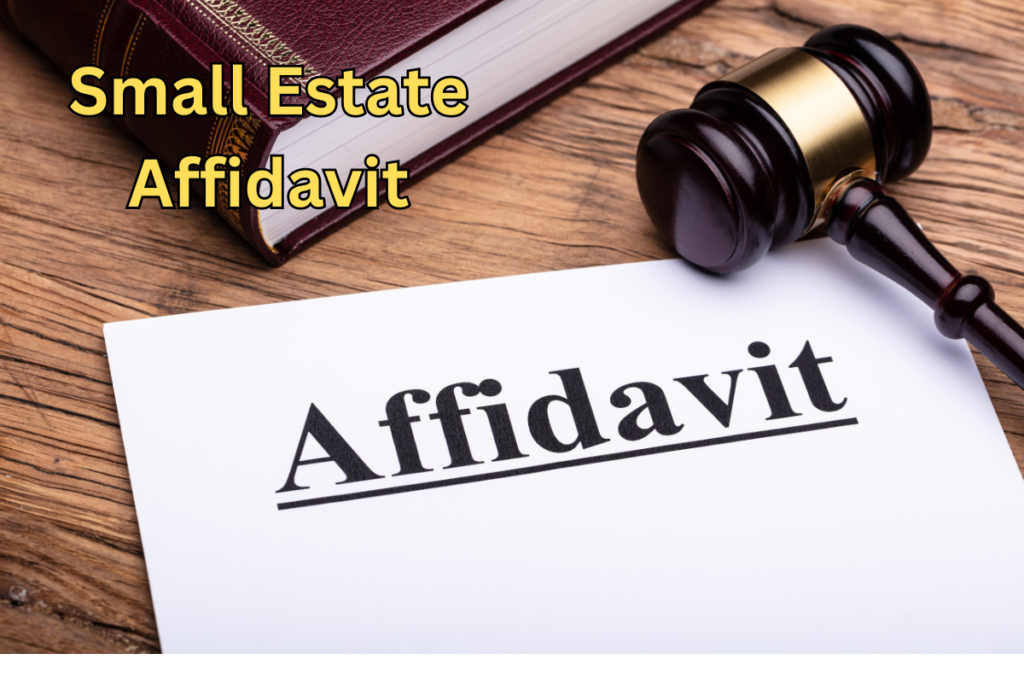What Is Simple Probate in Nevada?
Simple probate in Nevada refers to a streamlined process for small estates valued under $300,000, formally referred to as a summary administration. It’s designed to make estate administration less burdensome and more cost-effective.
Depending on your situation, you might qualify to take advantage of Nevada’s Set Aside Laws or the Small Estate Affidavit process. These options offer significant time and cost savings, protect beneficiaries, and simplify asset distribution. Eligibility criteria and specific procedures vary based on estate value and composition.
Table of Contents
Defining Simple Probate in Nevada
Understanding the Nevada simple probate process is crucial if you’re dealing with a smaller estate in the Silver State. Simple probate refers to a streamlined process designed to make estate administration less burdensome for those handling smaller estates. There are three different simplified procedures that apply to estates valued below certain thresholds under $300,000.
By utilizing one of the simple probate processes, you can avoid the complexities and costs associated with traditional, full probate proceedings. As mentioned above, there are three options: Summary Administration; Set Aside; and Affidavits of Entitlement (or Small Estate Affidavits).
The goal of simple probate in Nevada is to provide an easier path for administering smaller estates, reducing the time and resources required to settle the deceased’s affairs.

Eligibility for Summary Administration
Navigating Nevada’s simplified, summary estate administration starts with knowing if you’re eligible for this streamlined process. This is for probatable estates where the gross value, less encumbrances, of the estate is less than $300,000.
This process still requires the personal representative to go through probate administration. You start with a petition filed with the probate court to appointment the executor, issue letters testamentary or letters of administration, as the case may be, and for summary administration.
Nevada revised statutes (NRS), Chapter 145 governs the summary administration process.
The petition would also ask for the decedent’s last will and testament to be admitted to probate. If the deceased person dies without a will, they are deemed to have died intestate and intestate succession will apply.
Benefits of the Summary Administration Probate Procedure
One of the primary benefits of this simplified process is a shortened Notice to Creditors period. Under Nevada law, instead of 90 days, estate creditors only have 60 days in which to file a claim against the probate estate.
There are also a couple of notices that are eliminated with this type of probate, thereby reducing the probate costs.
Understanding your eligibility for simplified estate administration can save you time, money, and a little stress during an already challenging period. By leveraging these options, you can streamline the inheritance process and ensure a smoother transition of assets.
Set Aside Law and Estate Planning
Nevada’s Set Aside Law offers a simplified probate option for estates under $100,000 and for those with proper estate planning. You’ll need to understand the eligibility criteria and filing process to take advantage of this streamlined probate process in Nevada.
It’s important to note that there are limitations on asset distribution, which can impact how you handle the estate’s debts and distribute property to heirs. NRS 146.070 cover the set aside process.
Eligibility Criteria
There are two ways to qualify for the set aside process.
First is that the total value of your estate’s property must not exceed $100,000. And second, you may use the set aside process if the decedent’s Will directs the estate to be distributed to a nontestamentary trust that the decedent set up during his or her lifetime. The Will is commonly referred to as a “pourover will”. The trust is commonly known as a revocable living trust.
Filing Process
Once you’ve determined your estate’s eligibility for simplified probate under Nevada’s set aside law, you’ll need to petition the court to initiate the process.
To begin, you’ll need to prepare and file a written request, or petition, with the court. This document should clearly state your intention to set aside the estate for distribution to heirs without probate administration. You must wait at least 30 days after death before filing the petition.
The petition must contain a specific description of the estate assets and an estimate of the values for the various assets. Known liens and encumbrances must be listed.
Here’s a brief breakdown of the filing process:
- Gather necessary documents
- Prepare the petition
- File petition with court clerk
- Wait for a hearing to be set
- Attend the court hearing
- Distribute assets to heirs
Document preparation is a critical part of the filing process. You’ll need to provide information about the estate’s assets, heirs, and any outstanding debts. This is why most people hire a probate law firm to assist with the process.
By carefully following these steps and meeting all filing requirements, you can expedite the probate process and distribute assets to heirs more quickly than through traditional probate methods.
Asset Distribution Limitations
Keep in mind that the set aside law prioritizes the payment of preferred debts and expenses. This means that before any assets can be distributed to your heirs, these obligations must be settled first. Specifically, attorney fees and costs, funeral expenses, as well as expenses of last illness and Medicaid reimbursements, must be paid first.
However, there are specific probate limitations and distribution rules you should be aware of. Under this law, courts can prioritize certain assets for distribution to heirs before addressing debts.
If there is a surviving spouse or minor children, and the estate is valued at less than $100,000, then the court must set aside the estate to the surviving spouse and/or the minor children without paying the creditors. There are, as you can imagine, a couple of exceptions to this rule too.
The court has the authority to prioritize and allocate debts of the estate, ensuring a fair distribution.
Here are key points to remember about asset distribution limitations:
- Applies only to estates under $100,000 or when there is a pourover will regardless of estate value
- Courts can set aside assets for certain heirs before debt payment
- Debts can be prioritized and allocated by the court
- Eases the burden on legal representatives
It is important to note that real property in Nevada subject to a set aside order will use that court order as the transferring document. In other words, this probate shortcut allows you to record the actual court order to transfer the title to real property.
Small Estate Affidavit Process
If you’re considering using Nevada’s Small Estate Affidavit process, you’ll need to understand the eligibility requirements in order to avoid probate.
You’ll first determine if your situation meets the state’s criteria for this simplified “probate” method.
Once you’ve confirmed eligibility, you’ll present the affidavit to the appropriate asset holder and follow specific procedures to transfer the deceased’s assets to the rightful heirs or beneficiaries.

Eligibility Requirements
According to Nevada statute, there are a couple of key factors that determine your eligibility for Nevada’s Small Estate Affidavit process, a simplified procedure for estates below certain value thresholds that do not have to go through the probate process.
To qualify, your estate’s value must fall within specific limits. For non-spouses, the limit is $25,000, plus vehicles and amounts due for services the decedent rendered in the Armed Forces of the United States.
And the limit is $100,000 if the person claiming the estate is a spouse that survived the decedent. Again, this amount is in addition to vehicles and amounts due for services the decedent rendered in the Armed Forces of the United States.
When considering asset limits, you’ll need to evaluate the total value of the deceased’s property. This includes personal belongings, financial accounts, and investments. But this affidavit of entitlement cannot be used for real estate.
Filing the Affidavit and the Asset Transfer Process
To use the affidavit, you’ll need to prepare the necessary legal documentation. This includes gathering information about the deceased, their assets, and any debts or liabilities. You’ll also need to identify all heirs or beneficiaries entitled to receive property from the estate.
The Affidavit of Entitlement grants you legal representative authority without court oversight, streamlining the estate planning process.
To proceed, you’ll sign the affidavit under oath and need to provide written notice to other beneficiaries with equal or superior rights to the assets than you. You also must wait at least 40 days for the date of death to present the affidavit.
It’s crucial to follow these steps carefully to ensure a smooth asset transfer. Here’s a breakdown of the process:
| Step | Description |
|---|---|
| 1. Verify Eligibility | Asset value is under $25,000, or $100,000 for spouses |
| 2. Prepare Affidavit | Include all required information |
| 3. Sign Under Oath | Have the affidavit notarized |
| 4. Notify Beneficiaries | Provide written notice if required |
| 5. Submit Affidavit | Present to relevant financial institutions or DMV for vehicles |
While this process is designed to be straightforward, it’s still recommended to seek legal guidance from a probate attorney. By following these steps and seeking professional advice when needed, you’ll be well-equipped to handle the asset transfer process effectively.
Benefits of Simplified Probate
These probate shortcuts in Nevada offer several key advantages for those handling smaller estates. The streamlined process reduces legal fees and court costs, allowing you to settle the estate more quickly and with less bureaucratic red tape, especially with the set aside and small estate affidavit procedures.
With a spouse or minor child, you may receive preference in asset distribution, ensuring your immediate family’s needs are prioritized. Additionally, the ability to set aside estate debts and distribute assets before paying creditors offers an extra layer of protection for beneficiaries.
You’ll also appreciate the reduced administrative burden over a formal probate. With the simplified small estate probate procedures (set aside or affidavit), you won’t need to submit additional reports or undergo traditional probate court supervision.
Frequently Asked Questions
How Long Does Probate Take in Nevada?
You’ll typically see a full probate timeline of 6 – 12 months. But for summary administration in Nevada, that time is reduced by a month or two. As the executor, your responsibilities include managing the estate efficiently to ensure assets are distributed to beneficiaries as quickly as possible. Since a set aside proceeding only requires one petition and one court hearing, the time involved in only 1-2 months.
Can Out-Of-State Executors Handle Simple Probate in Nevada?
Yes, you can handle simple probate in Nevada as an out-of-state executor. However, you may need to meet certain qualifications and have legal representation.
Are There Any Filing Fees Associated With Simple Probate?
Yes, you’ll encounter filing fees for any type of probate in Nevada. Typically, you can expect to pay between $300 and $500 in initial filing fees, depending on the county. These fees are part of the process timeline and cover document filing costs. There are also small filing fees for additional pleadings that are filed.
How Much Does Probate Cost in Nevada?
While it varies, attorney fees can be based upon an hourly rate or on the value of the estate. Probate may cost anywhere from $7,000 to $15,000, assuming there is no contest or other estate litigation. Because of the time and cost of probate, people want to avoid formal probate.
How Can You Avoid Probate?
The simple way to avoid probate administration of an estate is to set up a living trust and fully fund it. Also, accounts and other assets with beneficiaries listed skip probate altogether. As does holding title to real estate as joint tenants with right of survivorship.
Can Creditors File a Claim in a Simple Probate Proceeding?
Yes, creditors can file claims in a summary administration proceeding. However, they only have 60 days to file a claim after receiving notice, instead of the typical 90 days. Creditors’ rights include legal challenges to various aspects of the estate.
What Happens if Assets Are Discovered After Probate Is Completed?
If assets are discovered after probate, you’ll need to reopen the case. The executor’s responsibilities include initiating a supplemental probate process by filing a petition to reopen the case. This extends the probate timeline and may require a full distribution process for the newly found assets.
Related Articles:
Does a pour-over will avoid probate in Nevada?
Can I avoid probate without a trust?
Why don’t some assets avoid probate?
Where is the probate court in Clark County, NV?
Conclusion
You’ve now learned about simple probate matters in Nevada, including eligibility criteria, processes like small estate affidavits, the set aside laws and summary administrations.
The benefits of simplified administration are also evident. These options can save you time and money when dealing with smaller estates.
If you’re unsure whether an estate qualifies or need help navigating the process, don’t hesitate to seek legal advice. Call to schedule an appointment to discuss your unique probate situation.

